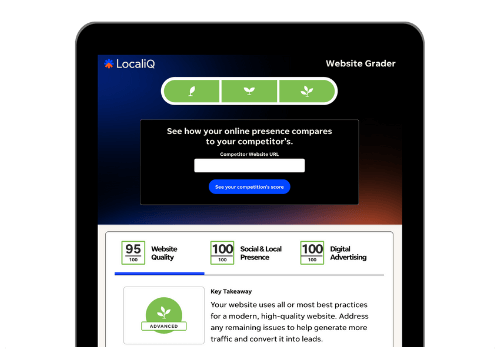Building a great website is imperative for modern businesses “ especially now. Your website represents your brand online, and it’s pretty much the only place where you have full creative control over how everything looks and feels.
But it’s not enough to craft a website that looks great and is easy for people to use. It also has to be easy for people to find your website in the first place.
That’s where SEO comes in. Search engine optimization is the way to ensure your website gets discovered by the right people at the right time.
But SEO is an immense thing to wrap your head around. Google takes hundreds of factors into account when determining how to display websites in search engine results pages (SERPs), so you may be confused about where to begin.
To start you off, these are the must-haves for your SEO strategy.
A Mobile-Friendly Site
Today, the majority of searches start on a mobile device. That’s why Google prioritizes mobile-friendly websites in its search results. Google wants to ensure its users are finding the most relevant and helpful sites when they search on the platform, so it caters to the needs of its mobile-minded audience.
This is why it’s critical you have a mobile-friendly site. Responsive design allows you to build a site that configures itself to look great on any screen “ no matter the size. It’s also a good idea to test-drive your site for yourself on desktop, tablet, and mobile screens so that you know first-hand what the user experience is like on each.
A Strong Keyword Strategy
Once you’ve built a site designed to give mobile users a seamless experience, it’s time to get into the more strategic side of SEO. With keyword research, you’re aiming to understand the words and terms that people search for when looking for a solution like the one your business offers. By understanding how customers talk about their problems in their own words, you can tailor your content to help your website show up for those relevant search queries.
Smart keyword research is all about going straight to the source. Survey some of your actual customers to learn what queries led them to your business. There are also tools that can provide you with analytics about the terms people are using to find each page of your website, or you can talk with your SEO partner, and they can help you determine the best keywords and phrases to use.
Content That’s Optimized for Search
When it comes to optimizing your website for search, it’s not enough to target generic keywords related to your business. Building out a content strategy that’s focused on answering specific questions and then optimizing each individual page for the most relevant keywords is the way to win at SEO.
At the end of the day, your website isn’t really about you; it’s about helping your customer. When you create content that’s searchable and addresses their most pressing questions, you give yourself the greatest shot proving your relevance and rising to the top of SERPs.
To get started, brainstorm a list of questions that people ask you and your team. From there, craft content that directly speaks to those questions and concerns.
Don’t worry about stuffing in keywords and writing to trick the search engine’s robots. Instead, focus on writing in natural language and providing real value for your human readers. That’s the best way to optimize for all search, including voice.
Related: Is Your Web Content Optimized for Voice Search?
Consistent Offsite Signals
When you think of SEO, it’s natural to focus on the elements that influence SEO on your own site. But there are factors to consider offsite, too.
Search engines are looking to make sure that information about your business is consistent across the internet. If you have conflicting business hours or contact information listed on your website, social media pages, and local listings sites, you’re going to be penalized in search results.
It can be hard to keep track of your complete online presence beyond the bounds of your website. Sure, you know about your social media profiles, but sometimes your business is listed on other sites without you even knowing. That’s why it can be helpful to find a partner to handle listings management to ensure all of your information is up-to-date in every corner of the web.
An Analytics Plan
SEO is a constantly moving target. Search engines are always switching up how they source sites in SERPs, and your competitive landscape shifts almost daily.
This means you can never rest on your SEO laurels. Even if your SEO is performing well one day, if you sit back and do nothing, you could find yourself slipping in the future.
It’s critical to track your SEO performance. If you’re not keeping an eye on how things are going, you won’t know when you begin to fall behind. Not only that, but you’ll also miss out on opportunities to lean into techniques that are working for you.
A smart approach when it comes to analytics is to create a dashboard that you update regularly. Don’t, however, track every SEO metric under the sun. Instead, focus on a handful of KPIs that are real signals of risk or opportunity.
Related: 10 SEO Metrics You Need to Measure
If you’re constantly checking in on these metrics, you quickly become aware of shifts in positive or negative directions. This awareness empowers you to capitalize on good things right as they happen and course-correct immediately if something starts to go wrong.
When it comes to SEO, there’s a lot to think about. From technical elements to strategic content decisions, from onsite metadata to offsite contact information, staying ahead of SEO truly is a full-time job.
If you’re feeling overwhelmed by the many moving SEO parts, take a look at our SEO solutions. We have the capabilities to take you far beyond the basics and build out an SEO strategy that gets you noticed by the right audience.
Related Articles
How to Future-Proof Your Marketing Plan with SEO







